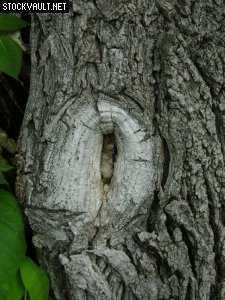Nature hates a vacuum. Remove a stone from the bank of a river and water rushes in to fill the space. Scoop out the sand to make a moat around the pail shaped castle and the tide seeps through the foundation. The sand slides and melts back into the shore. The natural world obeys the laws of physics. The human psyche defies these laws. Nothing rushes in to fill the space left by grief . When we lose someone or something of great affection, the space that was occupied in our heart does not quickly fill in. It may eventually mend, like a wound on a trunk of a tree when a large branch has been lost; the healing of the heart will be forever scarred.
It is good that hearts are just squishy things. The don’t break; they just bruise.Easily.
But the affairs of the heart are a constant battle between a glass half full or a glass half empty. A joyous and fulfilling life is one in which the heart has no patent foramen or valvular disease. But, the spaces left by grief and sorrow weaken a heart. They are different than stenotic areas with restricted and poor blood flow. If a heart has a stenotic valve or a blocked artery, blood flow can restored by angioplasty or valve replacement. When a heart is constricted and blocked, it can be opened and restored. It is like unclenching a fist tightened with anger or jealousy. But for a heart that has taken a massive blow or the heart that has had a slow, insidious decline over time, the damage is not easily fixed. The repair comes with filling the space with new joy, new pleasure, new happiness and new love. While the old loss and grief cannot be erased or excised, it can be diluted and even regenerated by a new and fresh joy. A new happiness can be like embryonic stem cells capable of renewing a long atrophied area. And then a heart shifts from a gaping wound of grief to a strong and vital organ capable of deep love and passion.
It is a stunning experience to take a new breath of air with a newly restored heart and actually breathe fully and deeply for the first time in years. Previously faced with a slow decline in function, a person shuffling along with an inefficient heart cannot imagine ever feeling the energy of a fully functioning heart. And then one day, it just walks in the door. One day, the wound just heals, like someone poured magic pixie dust over the area. The heart knits anew and the long flaccid area moves. The kick regained is shocking. The system has not felt such energy or vitality in many, many years. And then we know the power of love.
The day my first child was born, I finally understood love. When he went from being inside me and part of me to someone I could hold in my arms, I felt something in my chest heave. It was like it beat for the first time. I had a faint memory of a love so deep and so unconditional, but it was trampled in the rush of growing up. When I was pregnant with my second child, I feared the impact of dividing my love. How selfish of me to want another child when it meant I would have to take some of the love I freely gave to my first born for the second. When I held my second child in my arms, his eyes alert and wise, I felt like an entire new chamber of my heart opened up. My love was not divided but multiplied, amplified, replicated, duplicated and compounded. It was deeper and wider than anything I could imagine. It felt like infinity.
Loving another person by choice is not as pure or cellular as the love a mother has for her child. [I ponder, often, the love Mary had for Jesus. I imagine her sorrow for his suffering and death was in equal measure to her love. It is a sea of sorrow I cannot bear.] Loving another person by choice is a choice easily avoided. I can chose not to speak Spanish even if I am fluent in Spanish. I can refuse to use my left hand if I am ambidextrous. I can refuse to wear glasses to see things in the far distance if I have no intention of ever traveling. Love is a choice. But sometimes, love just walks in and slams you on your back. Sometimes love shakes the ground beneath your feet leaving your grappling. The tremor may be brief and minor in comparison to previous quakes. But in an area when the fault line has been long dormant and ignored, where the earth has not moved for long time, the force of love can create anxiety and fear. I don’t want the earth to move under my feet. I don’t want the sky to tumble down. It means I risk one day the gaping sorrow when it goes away, again. There are only so many branches that can be lopped off a tree trunk before there are no longer enough leaves to support photosynthesis. One day, the tree will just wither and die. So love is a choice. A risk, an avoidable risk.
